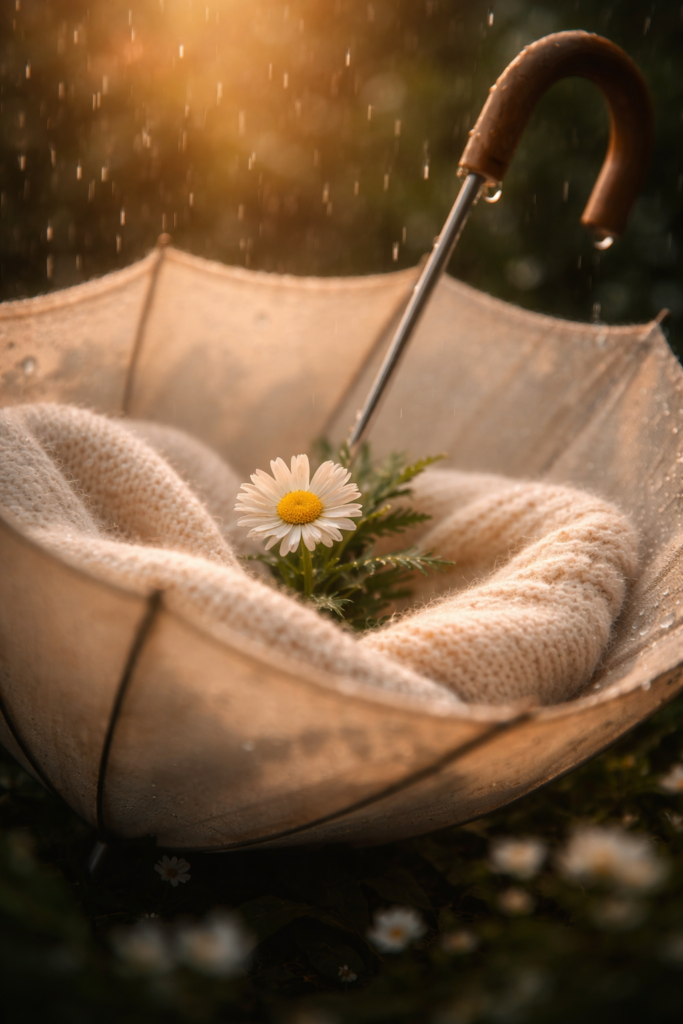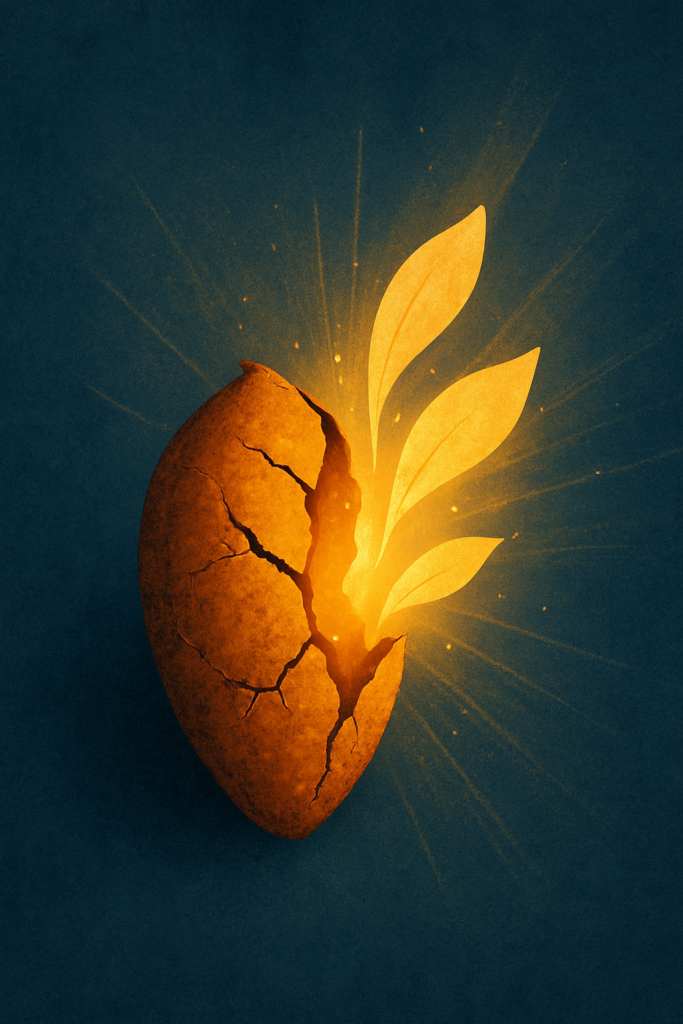What made me wonder?
I watched a movie with Daniel Day Lewis, ‘Phantom thread’. The phrase in itself means, one keeps sewing even when the actual thread has finished, with phantom thread. The machine keeps running on an invisible thread. Hence the story possibly reflects ghosts of past relationships and traumas and how they are affecting the protagonist’s Reynolds Woodcock (played by Daniel D Lewis) present life.
The movie talked about how his interest in his partner/muse only remained till that partner could care for him on his sick days. Needless to say he had one too many muses and relationships. Anyway, he despised becoming vulnerable, was a workaholic and would let his partner go when he felt his life and routine were getting disrupted.
But this particular partner (Alma, played by Vicky Krieps) somehow showed him that it’s the vulnerability he has to stop avoiding if he wants the full bliss of love. He did like being in love and his understanding of being vulnerable in love paved the way for a stable relationship. At least this is what I understood from the movie.
(Mild spoiler alert) Some say he was poisoned in the end willingly, by his partner, because he felt it was better for him to die than bearing such vulnerability to be in love. He could have inflicted control on his partner, yet he chose surrender to his fear and died.
Whether literal or symbolic, it showed the lengths some go to avoid vulnerability, even if it costs them love. Anyway, watch it yourself if you want to explore it more.
Wound is where the light enters, as they said!
To some people this awareness of vulnerability that was discussed in the movie Phantom thread, is the basis of any loving relationship. But the dependence that comes with it, some people truly want to avoid.
They have never found trust in their life or have been hurt so much, their vulnerable bones have deteriorated. Hence, they leave when they become too dependent on the other person, with the fear that they might be disappointed.
This is probably why Reynolds Woodcock (played by Daniel Day Lewis, in Phantom thread, the lead character) preferred unstable relationships and eventually death in the end, over trusting someone.
He probably had an avoidant attachment style, along with other emotional wounds from his childhood.
Some facts to munch on:
For context, the attachment theory states:
Anxious lovers often seek purpose through saving/protection. The purpose keeps them relevant in the relationship.
They in turn seek closeness and constant reassurance, want to fix others, and fear abandonment. They may prioritize the relationship over their own needs just to keep it intact.
Avoidants often withhold care and emotional availability to avoid needing. They want their space and avoid becoming dependent on someone.
The savior role (we would be talking about it in a bit) becomes a safe way to be close because it keeps the avoidant person in control. They’re always the giver, never the receiver. Vulnerability stays one-sided. They tend to pull away when things get too close. (Our dear Woodcock probably preferred dying over being in a relationship, so deep was his wound.)
So what is love, can I dissect the hell out of it?
The ability to be vulnerable in front of the person you love is not the only cornerstone of love, but there is something more interesting, protection.
Love in its most innocent form, needs someone powerful. A savior, like a child’s love for the parent.
And in the evolved form or maybe the ultimate form it may be the parent’s love for a child, or love for an animal or someone who is unable to protect itself. Because it reminds them of God. At least that’s what my understanding of love is, as of now.
You love a child (or a pet or a plant or any being) because you want to. Because their being/presence enables you, nourishes you and soothes you. You will move mountains to nurture them.
Isn’t it probably the form of love God has for us?
Understanding the OG God and love
What if God, after all His omnipotence, longs for a love free from His powers, a love He didn’t have to earn?
If love is about reciprocation, what if God is craving for a love like a child where He would be loved beyond His power, just for His being.
Is God waiting for someone to cradle him, since he’s tired of taking care of us all alone?
But what if it is a saviour complex I’m talking about? Is it my need to feel powerful?
Is it otherwise possible that I develop a kind of love where God and I mutually care for each other and protect each other?
Would I hurt God’s ego by asking Him to let me protect Him?
Is it possible God neither wants to be worshipped or cradled but canoodled like equals?
This is all on the basis of the assumption that God is as much part of our emotional realm as other beings. It is we who are treating Him as an outsider, over and above it, but what it’s not something He wants.
Also a note, I use ‘He’ for God because I assume Him as someone who identifies as a man. You can imagine whichever pronoun for Him. I’m pretty sure God is a pretty chill and fluid being.
Coming back to the Earthly realm of mortal men and women
This also makes me wonder, why men-women relationships are so much about protector savior dynamics. Evolutionary, it was the need. The male was protecting the female, the provider and protector of the mother of his children. Perhaps that’s the origin of masculine protector energy, rooted in evolution, not essence.
But today, do we still need that dynamic? Haven’t the definition of protection and saving changed?
And if we are talking about loving God too, do we need that protectionist savior complex from Him? Or is that how I should check the love God has for me, whether He is protecting me?
Yes, the reality is that the world is full of harshness that we need protection from. The person who loves us should do everything to protect us, but is there a possibility of a relationship where nobody needs saving. A relationship where they don’t define their partner as someone who has saved them or protected them.
Now, we don’t confuse support/help/assistance with saving/protection here. In a relationship, typically out of love you like to support each other in whatever way you can.
But saving/protection can easily be pushed into the realm of a favor, something to be grateful for. And that is not a healthy dynamic where one partner is constantly grateful to the other, as if they are needy and disadvantaged. Because that’s like charity, not love.
What if I don’t like the hero, but the scaredy clumsy side character?
If we do agree on love of equals, can we let damsels in distress be in distress? Help them in another way, other than being in love with them because they need rescuing.
Why should you rescue her from her distress then go on to fall in love with her? Or the only reason you rescued her is because you love her ? Does vulnerability attract you?
Is it some kind of trauma-bonding (google it to understand more) or love or savior complex?
Do I love people because I see their pain, or because they allow me to be the healer?
Although I can’t take away the fact that I want to elucidate all the pain the person I love has, because I can’t see them in pain.
But does it also mean, I’ll only want to be with the person who has some pain I need to help them with, so that I am relevant in their life?
Thanks but no thanks!
It makes me wonder, is gratefulness the only way love in an amorous relationship could last?
What if love didn’t need to be earned or repaid, what if love could just be?
Is pain and protection the cornerstone of attraction? What about peace as the cornerstone? What about respect? Playfulness?
Is it healthy and real to have pain and protection as the center of a love relationship? Isn’t that more like a parent-child dynamic, in a purely adult relationship?
Why when you are having second thoughts about a person, society comes up with excuses like who else will love you in your situation, like love is not love but a favor. We should be thankful for the protector to save us and then call charity as love.
At least if we call it what it is, then we can attune our behavior accordingly. We would know it’s not a relationship of equals who want to be with each other, but more like a charity case, master and his rescued slave.
Also, what if the person you love is incapable of protecting anyone, even themselves, should that person not be allowed to be in love?
Why even a slight difference in any characteristic of the person, makes them a not so ideal choice to be loved?
People who fall in love with people (who are different from ‘normal’ in any way, their background, physical and financial characteristics, social standing), are glorified for being big hearted.
But what if these human-gods were actually not that cool, and formed this relationship just because they could be glorified and worshipped.
Another god complex in making.
But doesn’t that also mean God shouldn’t love us, because we are in front of Him as frail and weak as an infant, living at the mercy of others?
Does even god not love me just for my being?
Marry me because I want our love ruined!
Amorous love when it is turned into marriage is often compared to how capable both the people are, calling them power couple and what not. When we know nobody likes being pitied, marriage is one where one of the qualities acquired to have a long relationship is pity, not compassion but pity, to be accepted by the one who is not so perfect. At least that is being taught to us again and again.
But does love really need a set of characteristics, a perfect image, a kite with a flying thread? Why do we want to define marriage with who is dependent and who is the protector? Typically the Male is a financial provider and Female everything else. That’s the image society wants to sell at least.
Girls are typically brought up with this mindset, that a boy, the person who would love and marry would be rescuing her from whatever she is struggling with in her life.
That she is incapable of saving herself, or shouldn’t rely on her friends or support, but a white knight with shining armour/ a tall dark handsome/ a man who has taken therapy.
We usually marry our mirror images or polar opposites. It is not like dressing up complimentary where the top has to match the bottom but more like a puzzle, which just fits.
Because if they are complete on their own, do they really need each other?
Or is it another form of love where you still are with each other even when you don’t need each other but I wonder how passionate that love can be.
The fact of the matter is that we will get disappointed in love. That’s how it is. Because if we dig deep into it, disappointment is up to our understanding of love, there is no right or wrong in it. It is what we expected in our relationship.
Love didn’t disappoint us, our fantasy did.
No JLo, love does cost a lot of things, including my peace!
Let’s take a step back. The reason love will have disappointments is because all love is not the same. The expectation of what love would make someone feel, what love will give you to make you feel happy is different for everyone, only they don’t realize it. Even if they do, society is quick to push its definition on everyone.
We believe love has one definition and probably that’s why we have one common set of expectations but as people we are not one set of people, hence the disappointment. This is why we hear people say they are doing as expected from them in love yet their partner is not happy. Or, my partner is a really nice person, does everything to make me feel loved yet I am not happy and don’t feel loved.
Love or the happiness associated with it is highly guided by our unmet needs and conditioning (bringing up, childhood, social norms etc). We believe by looking at someone or adopting someone else’s definition of love that this is what will make us happy and loved but we are wrong.
When we actually get into a relationship, the initial fervour goes away, and what is left is a barrage of unmet needs and expectations. Now if your partner doesn’t know about them they are set to disappoint you again and again. The exam is rigged.
Even more so, if they do understand, they might have their own resentment that this is not their expectations of love and hence they are unwilling or unable to cater to your needs.
Also, this needs to be said, people have different unmet needs, some more, some less, some may have none who knows! The relationship would look entirely different for each couple (or throuple, because chaos of two is not enough).
Does this mean two people with complimentary unmet needs or with no unmet needs at all would have a better relationship, probably. I am not sure. But it seems the more I’m aligned to my own needs and my partner’s, chances are I’ll be able to make them happier.
Does this mean broken people shouldn’t fall in love? Or is love only for fixed people? Not necessarily. It means the first step is to become aware of what you are and what you are looking for in love and then take it from there.
Unless you know what you want, how can you expect your partner to know beforehand?
Once you have realized your non-negotiables or in general what you expect from your partner, you have to communicate them to your partner, no matter how bizarre they are.
You have no idea what people who love you can do for your bizarre needs. That’s what love is about. Keeping up with your nonsense!
Because to keep erring is human!
Coming to disappointments in love, is it okay to leave your love, because they will disappoint you? Is love only about the good times?
Love is about being with someone, with everything and without too. So those who are scared of pain, are actually disillusioned. They should be told, it’s okay to be in pain, because it’s normal. They can’t avoid it. And if they are avoiding pain, then they are avoiding happiness too.
The key take away from the ‘Phantom thread’ movie was, you don’t change your partner if there was no sickness. Your partner is not like an insurance policy. You keep buying one with the hope you never need one. Yet you don’t want to keep buying one because you have not been able to use it (fortunately).
In reality, people have left their partners when they get sick, with the hope of finding better pastures or just running away from the responsibility. So much for being with each other for better or worse.
We want people (in a relationship like marriage) to stay by our side for a very long time. But for that long time to happen, apparently we need a requirement to stick around, a purpose to keep pulling this relationship forward.
But do we really want a requirement? Are we sure if there is no requirement people would not stay?
This idea of people sticking around for a long time is for those relationships where people like being with each other, but not like stale relationships blaring of emotional death.
Finally, I’m tired!
Anyway, this exploration of love in all realms is a never ending research. It does bring me closer to God and his beings. This research does make me feel I can have it all, except my ‘all’ is not well defined yet.
Love will always remain the most talked about, yet most misunderstood, misinterpreted yet most coveted and most thought about feelings. The more I think about it, the more it becomes difficult to understand.
It’s not for one person or one generation which can figure out its answer, but will take many ages to.
I will do my bit, till I feel I truly mean when I say ‘I love you’!
I’ll keep figuring out till I find a concrete answer, if there’s one!



